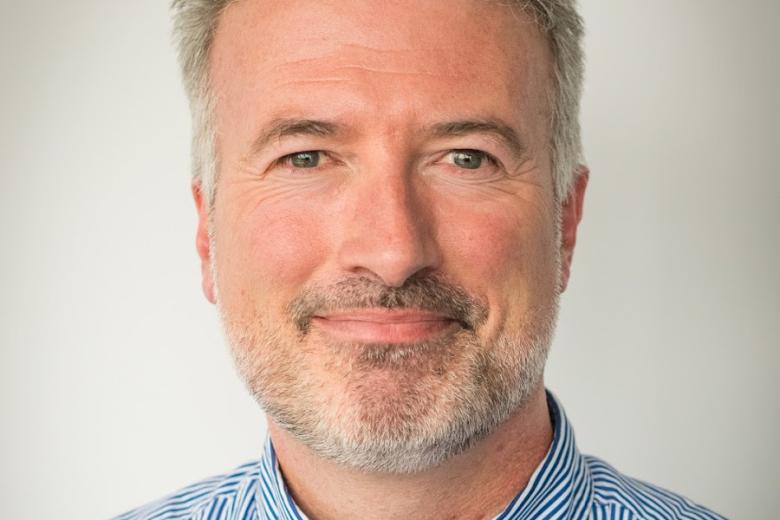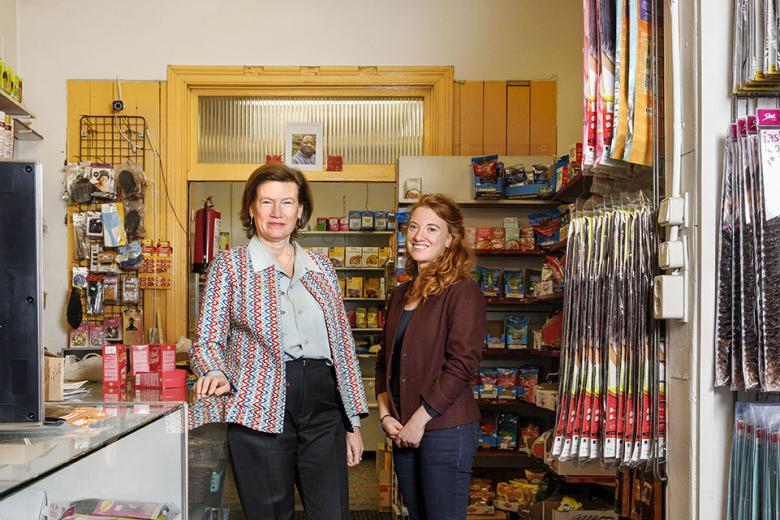You can’t be a friend to everyone
To much of the Dutch public, Jaap van Dissel has become the bearer of bad news, or the face of an evidence-based approach to handling COVID-19—or both. The government’s chief medical adviser on receiving an honorary doctorate from Maastricht University, the reality of crisis management and how you can’t be everyone’s darling.
“It’s been an intense year,” concedes the chair of the Netherlands’s COVID-19 Outbreak Management Team (OMT). It is an understatement in keeping with the calm, collected demeanour for which public health aficionados and, since last year, the Dutch public have grown to appreciate Jaap van Dissel. With his televised explanations of the OMT’s decisions, he has become the spokesperson for science.
Van Dissel is keen to play this down. “I’m only one of many experts collaborating on the OMT. The advice we give is about how best to contain the spread of the virus. From a purely scientific perspective, what would be the best course of action in light of the available data and the expertise of the OMT members? It’s then up to the government to make a decision that also considers the economic and social impact of measures.”
Difficult decisions
The process following the OMT’s advice is thorough and inclusive. Before reaching the government, recommendations are tested for feasibility by the BAO (Bestuurlijk afstemmingsoverleg), an advisory group comprising representatives of affected groups. “Communication is also very important: people need to understand why the measures are necessary. Of course, the government also tracks the public reaction to interventions and explanations in order to tweak them accordingly.”
While “public support for the COVID-19 measures is quite high in the Netherlands,” Van Dissel concedes that criticism is inevitable—including of him personally. “You try to do what’s best for the greatest number of people, but there are always negative consequences. Ultimately, you have to be convinced that you found the right balance and stand behind your advice. And that’s what we hope to accomplish: the OMT decides on its recommendations together, based on the best available evidence and its expertise in the field.”
Between too much and too little
Van Dissel empathises with the criticism from some that the measures are too harsh, and from others that they don’t go far enough. “We do our best to balance those diametrically opposed concerns—but you can’t be a friend to everyone.” He experienced the two waves of COVID-19 very differently. “People responded incredibly well during the first wave. It’s much more of a challenge to motivate everyone in the second wave.” Since COVID-19 is potentially deadly for risk groups, but causes mild to no symptoms in most people, fear is no longer a motivating factor; for many, a sense of solidarity and moral duty is all that is left. “Fatigue has also led to a loss of urgency. That’s unfortunate, but it’s human nature.”
Jaap van Dissel MD is professor of Internal Medicine specialising in infectious diseases at Leiden University Medical Centre. He is the director of the Centre for Infectious Disease Control of the National Institute for Public Health and the Environment.
Also read
-
Empowering Smallholder Farmers in the Data Economy: Unlocking Opportunities and Overcoming Obstacles
Frederik Claasen, the head of policy at our partner organisation Solidaridad Network on the opportunities and obstacles facing smallholder farmers in their data ecosystems.

-
How do involuntarily returned migrants fare in Senegal?
The PhD research of Karlien Strijbosch focuses on Senegalese migrants who were forced to return home after a stay in Europe. Doing justice to such stories is no easy feat, especially when you come up against walls of silence, distrust and shame. Strijbosch and her supervisor Valentina Mazzucato...

-
Soft landing in Vienna
After several rocky years, Maastricht University alum Lea Vink has found her feet in Vienna. Professionally, she is taking new steps at the crossroads of aviation and organisational psychology. And on a personal level, luck has smiled on her since her transition from man to woman.

